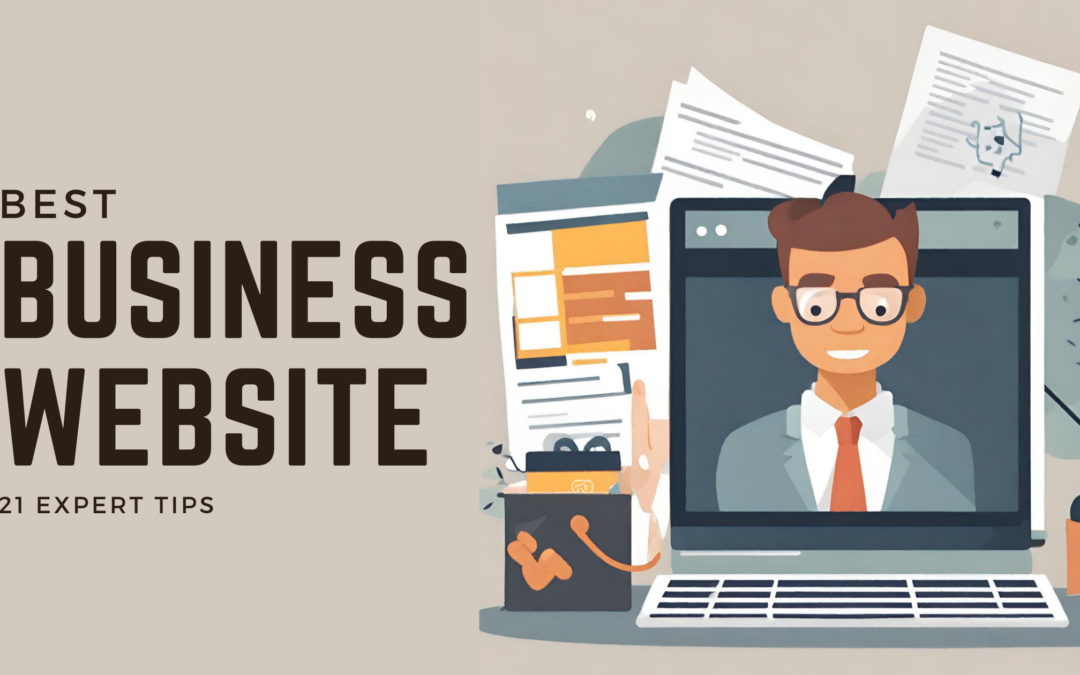Imagine you’re a doctor in a pediatric emergency room. Day in and day out, you witness children arriving with avoidable injuries sustained while jumping on a trampoline. Over time, just like the ER doctors featured in this Huffington Post article, you’d likely swear off ever owning a trampoline for your kids.
While it may not be as dramatic, we, as a digital marketing agency, see businesses repeatedly inflicting harm on themselves with common website mistakes. In this blog post, we’re going to outline the top 21 mistakes you should watch out for when evaluating your own website and provide expert tips for creating an ideal business website.
Defining the Ideal Website:
An ideal website is not just an online presence but a powerful tool that helps you achieve significant goals.
Here’s what we mean:
I recently had a conversation with a new client who had an existing website and opted to join our hosting and maintenance program. She mentioned, “I don’t really need a website. What I need is a platform to demonstrate compliance with state regulations, making our handbook readily accessible.”
She’s absolutely right. I’ve never met anyone who genuinely needed a website. Over the years, we’ve built hundreds of websites, but in every case, it wasn’t about needing a website but needing a way to connect with people, attract them, serve them, and more. A website is an exceptional tool to accomplish these objectives. In fact, because you own it, your website is one of the most potent digital assets at your disposal.
The Ideal Website Checklist:
Set Clear Goals: Ensure you have well-defined goals for your website and a method to measure your progress toward achieving them.
Example: If you run an e-commerce website, your goal could be to increase monthly sales by 20%.
Professional Design: Entrust the design of your website to an expert who understands User Experience (UX) design. Just because everyone uses websites doesn’t mean everyone can build an effective one.
Example: Your homepage should feature a clean and intuitive navigation menu, a clear value proposition, and appealing visuals.
Clear Calls to Action: Implement two types of calls to action on your website: a primary one for general engagement and a transactional one for specific conversions.
Example: Your primary call to action might be “Learn More,” while the transactional one could be “Buy Now” or “Request a Quote.”
Accessibility: Ensure your website is accessible for individuals with disabilities. Compliance with accessibility standards is not only ethical but also often a legal requirement.
Example: Use alt text for images, provide closed captioning for videos, and ensure keyboard navigation for users with disabilities.
Speed: A fast-loading website is crucial. Slow websites deter visitors and can negatively impact your search engine rankings.
Example: Optimize your images, leverage content delivery networks (CDNs), and minify CSS and JavaScript to improve website speed.
Mobile Optimization: Ensure your website is fully responsive and mobile-friendly, as a significant portion of internet traffic comes from mobile devices.
Example: Design your website to adapt seamlessly to various screen sizes, making navigation easy for mobile users.
Engaging Content: Your website should have engaging and valuable content that resonates with your target audience.
Example: Create informative blog posts, videos, or showcase client testimonials to engage and inform your visitors.
SEO Optimization: Implement proper search engine optimization (SEO) practices to boost your website’s visibility in search engine results.
Example: Use relevant keywords, optimize meta tags, and regularly update your content to improve your website’s search engine ranking.
Regular Updates: Keep your website content up to date and relevant to your audience.
Example: If you operate a restaurant, update your menu, opening hours, and promotions regularly to keep visitors informed.
Security: Prioritize website security to protect both your data and your users.
Example: Use SSL certificates, conduct regular security audits, and install security plugins to safeguard against cyber threats.
Effective Landing Pages: Create targeted landing pages with a specific focus on conversions. Use landing pages for promotions, product launches, and capturing leads.
Example: If you’re running a marketing campaign, design a dedicated landing page that emphasizes the campaign’s unique selling points and includes a prominent call-to-action button.
Additional Expert Tips:
Content Hierarchy: Organize your website content using a clear hierarchy. Use headings and subheadings to make your content scannable and help visitors find what they need quickly.
User-Friendly Navigation: Implement an intuitive and user-friendly navigation menu, allowing visitors to easily explore different sections of your website.
About Page: Craft a compelling “About Us” page that tells your brand’s story, mission, and values. Make it relatable and engaging.
Contact Information: Ensure your contact information is prominently displayed, including a contact form, email address, phone number, and physical address.
Social Media Integration: Integrate social media buttons that enable visitors to share your content and follow your profiles for updates.
Testimonials and Reviews: Display client testimonials, case studies, and positive reviews to build trust and credibility.
Newsletter Signup: Include a newsletter signup form to capture leads and keep visitors informed about your latest offerings.
FAQ Section: Create a Frequently Asked Questions (FAQ) section to address common queries and provide quick answers.
Search Functionality: Implement an on-site search bar for users to find specific information or products easily.
Analytics: Utilize website analytics tools like Google Analytics to monitor user behavior, traffic sources, and other key metrics to make data-driven decisions.
By following these 21 expert tips and avoiding common website mistakes, you’ll create a robust website that attracts visitors, engages them effectively, and guides them toward taking meaningful actions.
With a well-crafted website, your business can make a lasting impression and achieve its online objectives effectively. Create a website that not only looks great but also functions flawlessly to help your business thrive online.
Let us know if you want your free 21-Point Website Power Checkup Report on your website:
